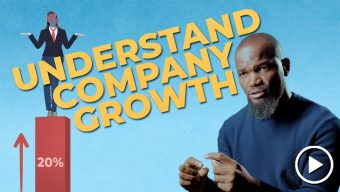From Startup to Scaleup: How to Navigate Growth
Should entrepreneurship focus on starting a company or scaling one? Joe Haslam explains the difference and highlights the importance of product-market fit, simplicity, and culture in achieving sustainable growth.
© IE Insights.
Transcription
It’s now 20 years since, to the absolute horror of my mother, I left a very well-paid job in consulting to leave, along with six others, and start a company. Twenty-six years later, some people are faced with the same choice. But of course, things are very different now. But the question remains is it a startup or is it a scaleup?
Because entrepreneurship is now connected with startup, when it should be much more connected with a scaleup. What’s changed in those 26 years is that we have made it much easier to start a company, but it’s much more difficult than ever to scale one.
The OECD definition of a scaleup is a company that grows for three consecutive years by more than 20%, and that is fine because most companies don’t even get over 10 people. So the scaleup is this company that’s massively growing really quickly. The issue, of course, is that in a startup everyone starts from the same point. Everyone starts from zero.
But in a scale up, we start from a later point. The key phrase that we need to start talking about is the phrase product-market fit. The interesting part about the product-market fit is that any entrepreneur is adding and subtracting features to a product, and they’re adding and subtracting the market they are addressing. But when exactly do you have eliminated the things you need to eliminate and added the things you need to add at the product side?
And also, are you addressing the right people on the market side? When you are looking to try and find a product-market fit, what you need to do is have all these questions resolved through experimentation. Only then when you know our product solves the problem for women over 40 with a dog who like Adidas sneakers, do you then start to talk about growth.
This is segmentation. Companies scale because they allow intimacy at scale. There’s a saying that says even when you know something is working with 100 people, then you have to get it working at a 1,000 people, at 5,000 people, at 10,000 people. Product design is all about eliminating, and that’s why it’s counterintuitive. Rather than adding things, you need to take them away.
There’s a favorite line from The Little Prince, a children’s book which says “perfection in design is achieved not when you’ve added everything, but when you’ve taken everything away”. It’s funny when we look at the Magnificent Seven companies like Google, Apple, Amazon, they actually really only have one big product and a lot of sub-products. So you don’t want to have too many products.
In fact, you want to have one big product. So: simplicity scales, complexity kills. The next part then is operations. And operations is about investing in technology. There was huge discussion about why America builds these trillion-dollar companies, and even why China builds extremely large companies. Good technology allows you to get at good information, and if you have good information, it’s quite easy to run a company.
The next thing is culture. All companies have a culture. The question is whether you have designed it or whether you have something that has let it happen. What kind of a culture do you have? Is it a culture where you’re customer centric? You do absolutely everything you can in order to make the customer happy. Or maybe some companies are less customer centric, but whatever it is, you have to have made a decision about which of those things apply.
Similarly with employees, do you want to bring in employees, get as much out of them as possible and let them leave? Or do you want to bring in employees and have those employees work with your company for a long time? The decision generally comes down to whether you want a specialist or a generalist. Scaling is all about moving from generalists to specialists, because specialists can only really function in large scaling companies.
And when you have specialists, suddenly things stop going wrong because the specialist has identified the thing that might happen and hasn’t let it happen. I understand why when you’re beginning, you need to hire generalists. You need to get whoever you can onboard. Large companies, they worry about talent because they don’t want to invest in talent in case the talent leaves.
Scaleups understand that you invest in talent and maybe the talent leaves, but then you can continue to work with them. And if I have one piece of advice for people when they’re leaving companies, it’s always join a company where the founder is present. Companies without founders tend to lose their reason to exist. Companies without founders tend to be, a fight for resources, but the heart, the reason why the company exists has mostly gone.
The final thing is courage. There’s a saying that intelligence is quite common. We all know very intelligent people, but courage isn’t. And that’s why places with clusters, whether it’s Shenzhen or whether it’s Silicon Valley or whether it’s London, that’s why they are successful. It’s because courage is something that you can get from seeing other people around you.
What is the thing that makes you do something? My answer to that is a piece of research from a professor in Stanford called Fogg. He looks at high performance. He looks at why people go on to achieve stuff and why people don’t. And it turns out, and this is a sad story, that many people who achieve stuff, it’s because something happened to them in their lives that caused them to do this.
Perhaps if you’re an immigrant and you’ve had to leave a difficult situation and you’re very motivated to succeed in order to show that you matter, that’s why so many immigrants are so successful in entrepreneurship. But what if you’re that person who has had a happy life, who’s had a supportive environment? Many people have the ability, the motivation and everything they need to create a 1,000-person, 2,000-, 5,000-person.
But what they lack is the courage.










